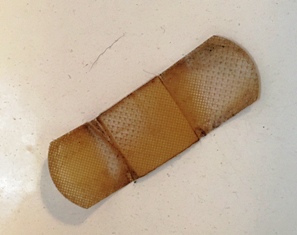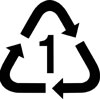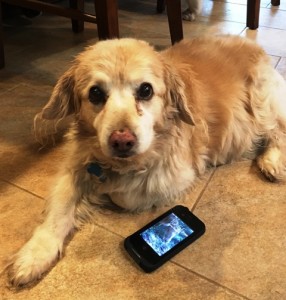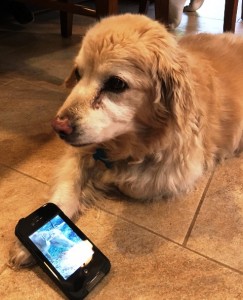It sounds like it might be a eastern disease from across the globe, but it’s not. The China Syndrome is a phrase coined by author, Gretchen Rubin and her sister. I heard it on their podcast “Happier with Gretchen Rubin,” and it just means that we have certain ideas of what it means to be an “adult,” and for Gretchen it means having and using China dishware. She thinks that she has finally arrived at adulthood when she can get out those delicate dishes and eat off of them. For her sister it is having all matching and beautiful furniture, no hand-me-down or garage sale pieces, a complete set that her family luxuriates over, or

it’s wearing nice clothes every day to work instead throwing something on and running out the door.
I liked their term and examples because so often I do not feel like an adult, or a grown woman for that matter. I like to think that some day I will have “arrived” and I’m officially an adult woman, but it would be for different reasons. For instance, China dishes are a waste of time and money to me. I don’t want to create more space in my house for plates and silverware that I use maybe twice a year, and I have to worry about chipping or breaking (“oh no, they don’t make that pattern any more!”), let alone cleaning and keeping out the dust. Matching furniture is another one that does not matter to me. At this point in my life, it seems time-consuming, expensive, and stressful. I have young children, dogs, and cats. None of those creatures combine well with sparkling furniture that I am trying to keep clean and “nice” for as long as possible (maybe when our obnoxious black cat who scratches everything to shreds finally dies, I’ll consider something new, but she made of pure evil and never dying).
So, what makes one feel like an “adult”? Owning a house? Having kids? Retiring? Even though I don’t feel like one much of the time, my kids certainly think I’m the grown-up. At forty, people half my age agree that I am. When our driveway was getting paved, the paver said I looked just like his niece Buffy, but when he asked his son who was working alongside him, his son said I looked more like aunt Barbie than cousin Buffy. I realized that I am probably closer in age to aunt Barbie, and may have her same graying hair and wrinkles too. It’s hard to accept because I have always looked young and people have always doubted my age. Once, on a flight when I was eighteen, the flight attendant asked if I was old enough to sit in the emergency exit row. You have to be twelve or older to sit in those seats! But now, I don’t look twelve, or eighteen, I look like an adult, so how does one feel like one? Obviously, China doesn’t make you an adult, matching furniture, a new car, or a paved driveway. Nice clothing with the right accessories might make a person appear more together, however it seems like a lot of effort, and these are all things…so what is it?
I guess, for me, I would feel more like an adult if I earned more money. I made the choice to stay home with children and write, and because of that choice we don’t have a double income (my writing earnings are pretty negligible at this point). I used to work, obviously, throughout high school, college, and beyond, until those kids showed up. However, getting my social security statement recently and seeing the obvious drop in yearly income over my working career was a little depressing. So I don’t know if I would necessarily feel more like an adult if I earned more, or just feel better about myself in general. However, probably opening and actually reading my social security statement might be an indicator of adulthood right there!
I do have this vision of a day when I have it “all together,” the house is clean, the checkbook balanced, the pile of unopened mail is appropriately sorted and filed, the retirement accounts are in order, those college accounts are well funded, and essentially I can sit on the couch and open a book with a nice contented sigh – “Ahh, everything is finished.” That would be nice. However, the reality at this point is much different, if I could get two out of four of those tasks accomplished, I would feel pretty good. And the other reality is that all of those things might be done in that moment, but the next day, the ball keeps rolling – mail keeps arriving, dust collects, purchases are made, college costs even more – there is no end point. Well, there is, but that would mean the ultimate end, and that is not a very positive outcome either. So, for the time being, I will keep on, keeping on and know that, even if I don’t feel like an adult, I certainly look like one, my age says I’m one, and hopefully I act like one most of the time. What’s your definition of being an adult? Have you arrived or are you still waiting for some specific time to make it official?

 e little triangle with arrows meant that it was recyclable because that is the recycle sign to her, but that’s not the case. That symbol is there to tell you what kind of plastic it is, not to signify that it can be recycled. Without getting too crazy about the many types of plastic and its uses, here is what usually can be recycled and what can’t.
e little triangle with arrows meant that it was recyclable because that is the recycle sign to her, but that’s not the case. That symbol is there to tell you what kind of plastic it is, not to signify that it can be recycled. Without getting too crazy about the many types of plastic and its uses, here is what usually can be recycled and what can’t.





 space. I know some people who will literally have about five dishes in their dishwasher and run it. Supposedly, it is so the dishes won’t touch because they might chip. It is such a waste a water. So I guess I must compensate for that by having every inch of space used in mine.
space. I know some people who will literally have about five dishes in their dishwasher and run it. Supposedly, it is so the dishes won’t touch because they might chip. It is such a waste a water. So I guess I must compensate for that by having every inch of space used in mine.

